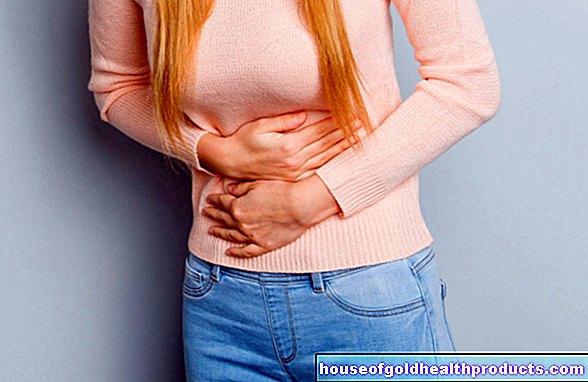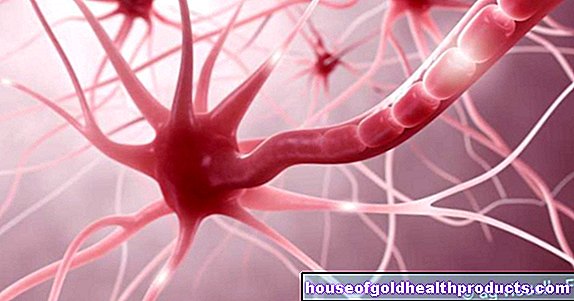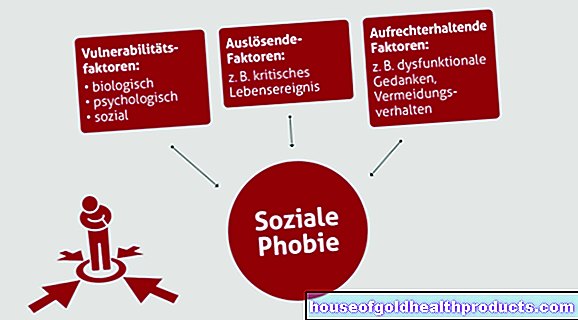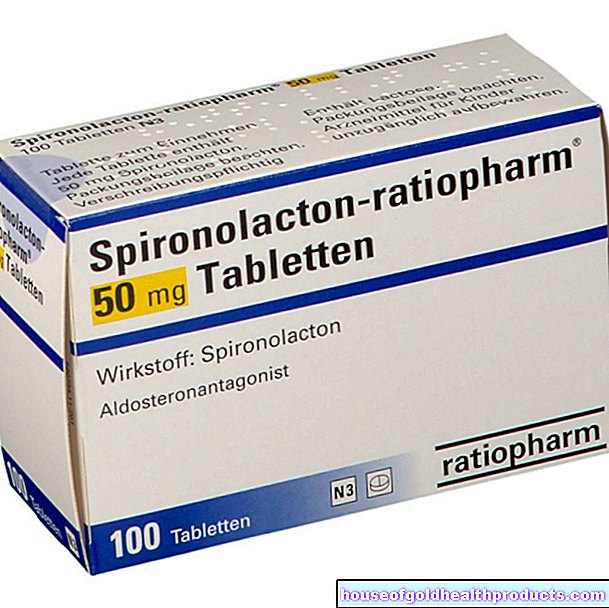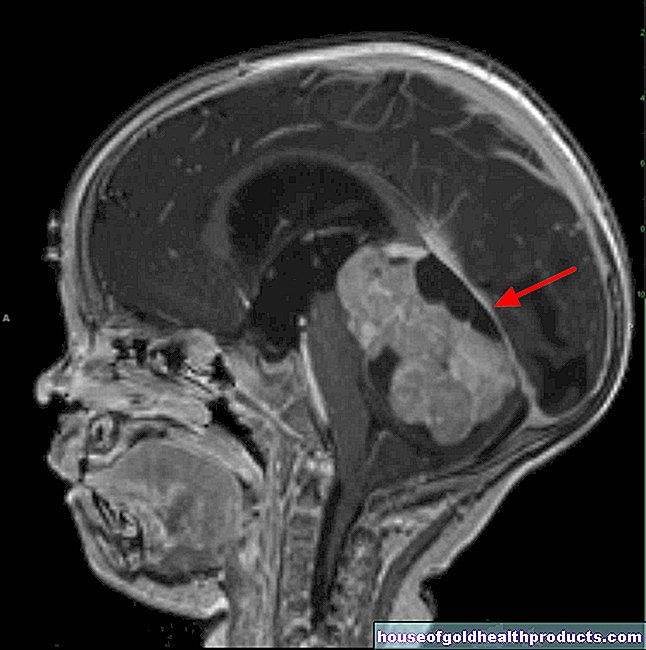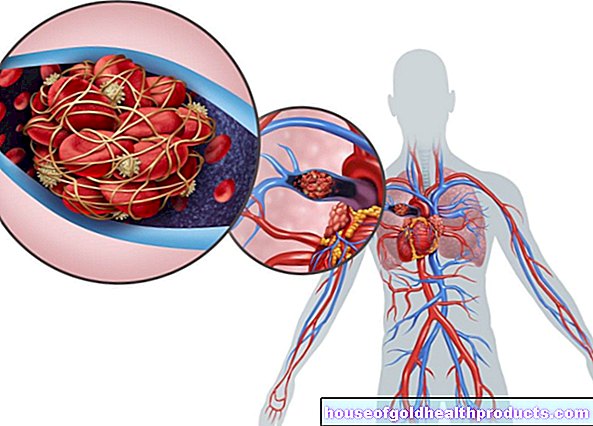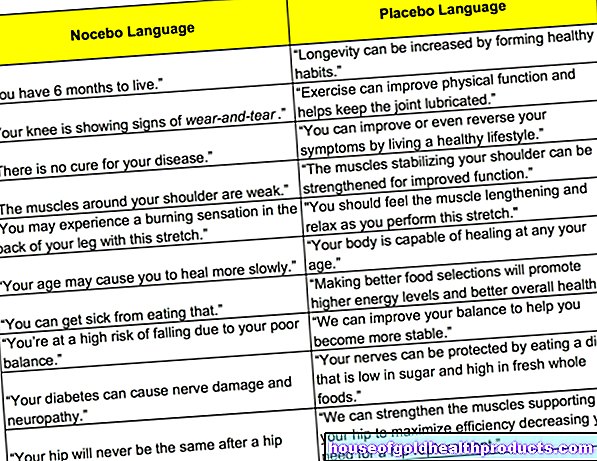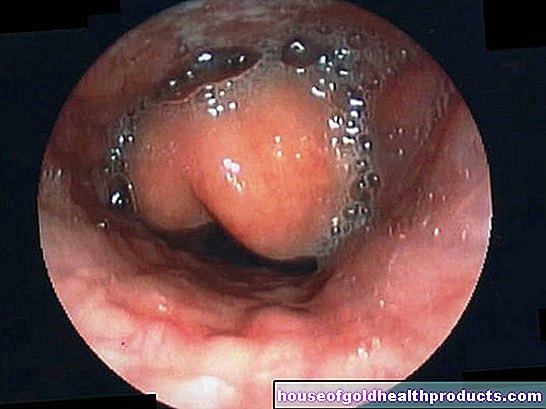Stomach pain & pregnancy
Dr. rer. nat. Daniela Oesterle is a molecular biologist, human geneticist and trained medical editor. As a freelance journalist, she writes texts on health topics for experts and laypeople and edits specialist scientific articles by doctors in German and English. She is responsible for the publication of certified advanced training courses for medical professionals for a renowned publishing house.
More about the experts All content is checked by medical journalists.Expectant mothers often complain of stomach pain. Pregnancy itself is often the reason for this: it is linked to a series of physical changes that can lead to unpleasant, but often harmless, stomach pains. However, the pain can also be caused by a serious illness such as HELLP syndrome. Read more about stomach pain & pregnancy and when you should see a doctor urgently here.

Stomach ache & pregnancy: not uncommon
Stomach pain is understood in a narrower sense to mean pain that originates in the epigastric region. However, the stomach itself does not always cause the pain; the intestines or neighboring organs such as the liver or gall bladder can also trigger upper abdominal pain.
Stomach pain can be sharp, stabbing, pulling, burning or spasmodic, occur spontaneously or last for days. The pain is often accompanied by a feeling of pressure or fullness, heartburn or an early feeling of satiety.
Stomach pain is not uncommon in pregnant women. Sometimes they appear immediately after eating or after a change of position, but sometimes without an obvious trigger. There are many possible causes for the pain - both harmless and dangerous.
If you are concerned about the well-being of your child because of your stomach pain, see your midwife or gynecologist. As a rule, you will then be relieved of your worries, as the complaints are usually harmless.
Harmless stomach pain
Being pregnant means a real masterpiece for the female body: Various physical processes are set in motion that prepare the organism as best as possible for pregnancy and childbirth. This enormous change can lead to many different complaints, especially at the beginning. For example, a large number of women suffer from nausea and vomiting in the first trimester of pregnancy. Constipation, gas, or heartburn increase as pregnancy increases. Why does pregnancy affect the gastrointestinal tract in such a way?
Hormonal change
The hormonal change (especially the increase in progesterone at the beginning of pregnancy) causes the muscles of the gastrointestinal tract to become increasingly sluggish. This causes food to move more slowly through the digestive tract. Constipation and gas are the result and can cause quite a pain in the entire abdominal area. If the food is no longer transported out of the stomach as quickly as usual, unpleasant stomach pains can result. Occasionally the pain increases to stomach cramps.
Burning to painful heartburn also indicates that the muscles are slack: the muscle ring that actually regulates the access from the esophagus to the stomach no longer closes properly, and acidic stomach acid can rise into the esophagus. Heartburn can also increase in severity as the pregnancy progresses.
If you drink a lot and eat smaller, more frequent, high-fiber meals, the stomach pain will usually improve. Pregnancy is also a time when you should avoid spicy, fatty and spicy foods - this is always good for your stomach. Regular exercise helps to get your bowels going.
Mother bands
Severe cramping pain often comes from the uterine ligaments - two ligaments of muscles that hold the uterus in place. As the uterus grows, the ligaments are increasingly stretched, which can be associated with pain. These occur mainly as abdominal pain, but they can also radiate into the upper abdomen - the pregnant woman complains of stomach pain.
Pregnancy: the child grows, the stomach hurts
As the pregnancy progresses, not only the child but also the uterus grows significantly in size. Both take more and more space from the surrounding organs. For example, the gastrointestinal tract is also narrowed. Depending on how the child is lying or what position you are in, the pressure on the stomach or intestines may be less or more pronounced. Constipation, gas and stomach pain and cramps are common consequences. Movements or even kicks by the child in the epigastric region sometimes cause stomach pain.
Dangerous causes of acute, severe stomach pain
Pregnancy or not: stomach or upper abdominal pain can have serious causes, especially in acute, severe complaints that may be accompanied by other symptoms (such as nausea, vomiting or fever). There are countless possible reasons for this, for example stomach ulcers and inflammation of the gallbladder, pancreas or pleura. Gallstones are also a possible cause of severe pain in the upper abdomen or stomach.
Pregnancy can also have a specific reason for severe epigastric pain - HELLP syndrome. This is one of the most severe forms of preeclampsia and is based on liver dysfunction. The abbreviation HELLP is made up of:
- H for hemolysis (blood fall)
- EL for elevated liver function tests
- LP for low platelet counts
The most important symptoms of the HELLP syndrome, in addition to severe upper abdominal pain, are nausea or vomiting and possibly diarrhea. Blood pressure can also suddenly rise. In the event of such symptoms, you should contact a doctor immediately!
Conclusion: stomach pain & pregnancy
Nausea, vomiting or stomach pain: pregnancy is a time when some women struggle with it, but the cause is usually harmless. However, if you are very worried or if the symptoms are severe and acute and are accompanied by other symptoms, a visit to a doctor is advisable!
Tags: digital health prevention menshealth

